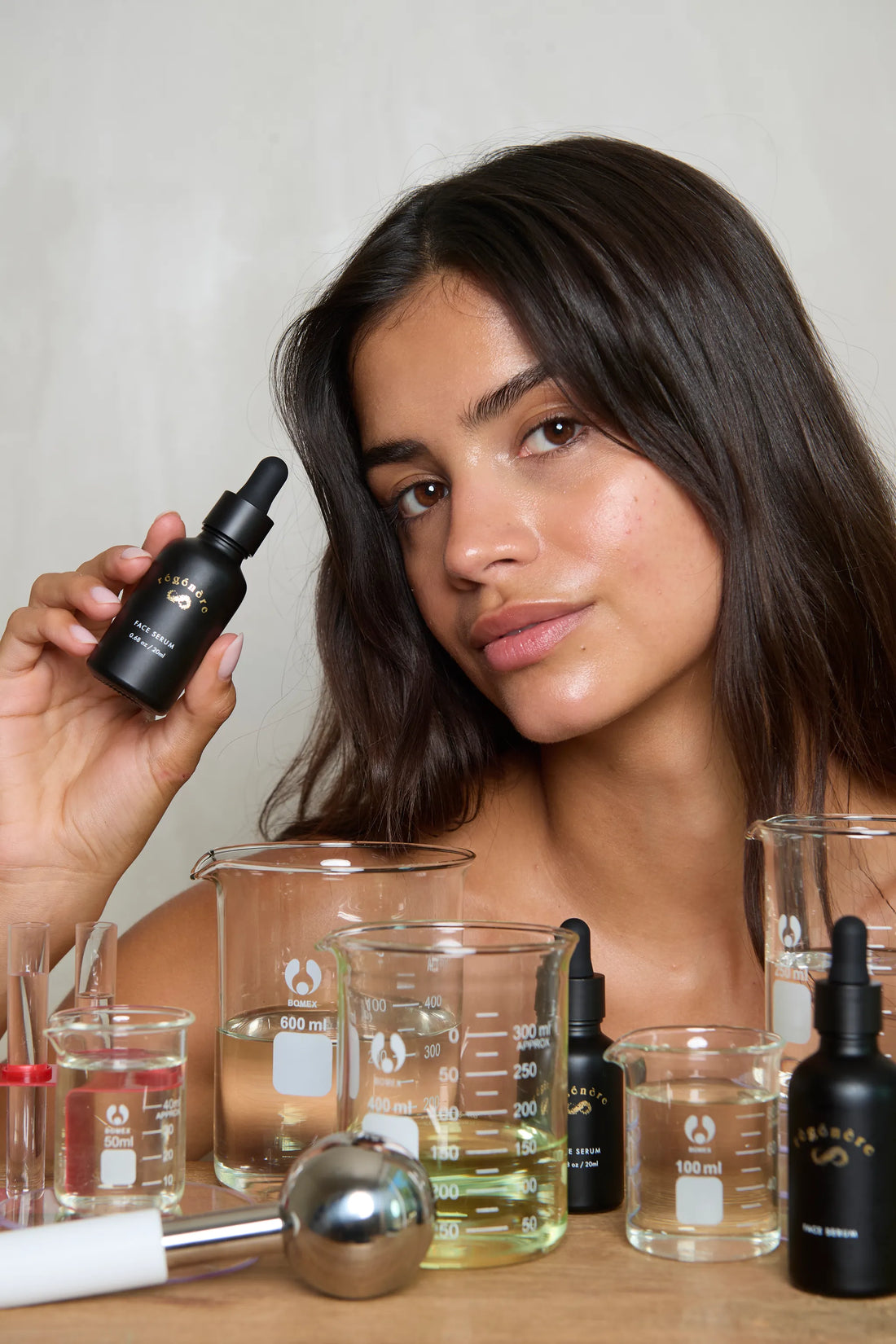
When it comes to longevity in skincare, two ingredients often take center stage: peptides and retinol. Both are considered bioactive, meaning they engage directly with the skin to influence visible change. But while each supports a more youthful appearance, they work through very different mechanisms. Understanding how peptides and retinol interact with the skin at a cellular level can help you make an informed choice based on your skin’s needs, sensitivities, and long-term goals. This guide explores the science behind both ingredients, focusing on their influence on cellular signaling, collagen support, and skin barrier health.
Understanding the Bioactive Nature of Peptides
Peptides are short chains of amino acids—often described as the building blocks of proteins—that help signal the skin to support its natural functions. They are integral in maintaining the appearance of firmness, hydration, and smoothness. Unlike harsher actives, peptides are known for their compatibility with the skin barrier, making them an ideal option for those with sensitive or maturing skin. Peptides can mimic signals the skin naturally produces, which helps maintain the appearance of youthful texture without triggering irritation.
In terms of biochemical activity, peptides influence pathways associated with visible collagen support and hydration. Some peptides are designed to help reduce the appearance of fine lines by promoting a plump, smoother-looking surface. Others may focus on calming the look of stressed skin or enhancing the skin’s visible resilience against environmental stressors. Because of their varied functions, peptide-based serums often deliver a more holistic, well-rounded effect, particularly when used in a routine targeting skin longevity.
Retinol and Its Impact on Skin Cell Turnover
Retinol, a derivative of vitamin A, is widely regarded for its ability to improve skin texture and reduce the appearance of wrinkles. It works by accelerating the skin’s surface renewal process, prompting more frequent shedding of dead skin cells and revealing newer, more radiant-looking skin underneath. This boost in visible turnover helps smooth the appearance of fine lines and may help even out the look of dark spots over time.
On a biochemical level, retinol binds to specific receptors in the skin, promoting signaling pathways that support the look of collagen and improve epidermal thickness. However, this process also comes with a risk: retinol can sometimes compromise the skin barrier, especially in those with sensitivities or drier skin types. Temporary irritation, redness, and flaking are not uncommon in the early stages of retinol use, which may limit its compatibility with certain users despite its visible benefits.
Comparing Collagen Support and Skin Structure Impact
Both peptides and retinol interact with the skin’s collagen matrix, though through distinct mechanisms. Peptides support the appearance of firmness by mimicking natural signaling processes that help maintain collagen’s visible structure and hydration balance. This can result in smoother, more elastic-looking skin over time, without the harshness often associated with exfoliating actives.
Retinol, on the other hand, exerts its effects more indirectly by encouraging the appearance of new collagen through increased visible cellular activity. This can be effective in improving firmness, but may also leave the skin vulnerable during the adjustment phase. Retinol’s impact on the skin structure can be transformative, but for those prone to irritation, peptides offer a gentler alternative that still delivers visible improvements in elasticity and tone.
Skin Barrier Health: Support or Strain?
The skin barrier plays a critical role in maintaining hydration and defending against external aggressors. Peptides generally help reinforce the appearance of a healthy barrier by supporting moisture retention and reducing visible stress. This makes them a good match for anyone experiencing dryness, flaking, or signs of dehydration, particularly in aging or sensitive skin.
Retinol, while effective, can initially disrupt the barrier function due to its exfoliating properties. During this time, the skin may feel dry, tight, or visibly inflamed. For optimal results, retinol users often need to pair it with deeply hydrating products or alternate-day applications to minimize potential discomfort. When choosing between these actives, it’s important to weigh the trade-offs: peptides offer visible support with minimal side effects, while retinol may deliver more dramatic texture results but often requires careful management.
Which Ingredient Is Right for You?
Choosing between peptides and retinol depends on your skin’s current condition, tolerance, and long-term goals. If your focus is on visible hydration, resilience, and barrier support with minimal irritation, peptides offer a reliable pathway with broad compatibility. They’re especially well-suited for those beginning an anti-aging routine or those who want to maintain results without compromising skin comfort.
If you're targeting deeper wrinkles, uneven texture, or visible discoloration and your skin can tolerate stronger actives, retinol may offer a more intensive approach. Just be sure to introduce it slowly and support the skin with proper hydration. Some users even alternate between peptides and retinol in their routines—using peptides in the morning for hydration and barrier support, and retinol at night for surface-level refinement.
Long-Term Skin Health Over Quick Fixes
Whether you choose peptides, retinol, or a thoughtful combination of both, skin longevity is ultimately about consistency and balance. Bioactive skincare isn’t about chasing trends—it’s about finding ingredients that your skin responds to positively over time. Règènére’s customizable peptide-based face serum brings a more adaptive, gentle approach to supporting a healthy-looking complexion, while retinol offers targeted refinement for those seeking visible resurfacing.
Règènére’s skincare philosophy emphasizes the importance of long-term results through effective, science-backed formulations. With carefully selected ingredients that support the appearance of firmness, hydration, and overall skin vitality, our products are designed to meet your evolving skincare needs, without overpromising or compromising your skin barrier.

